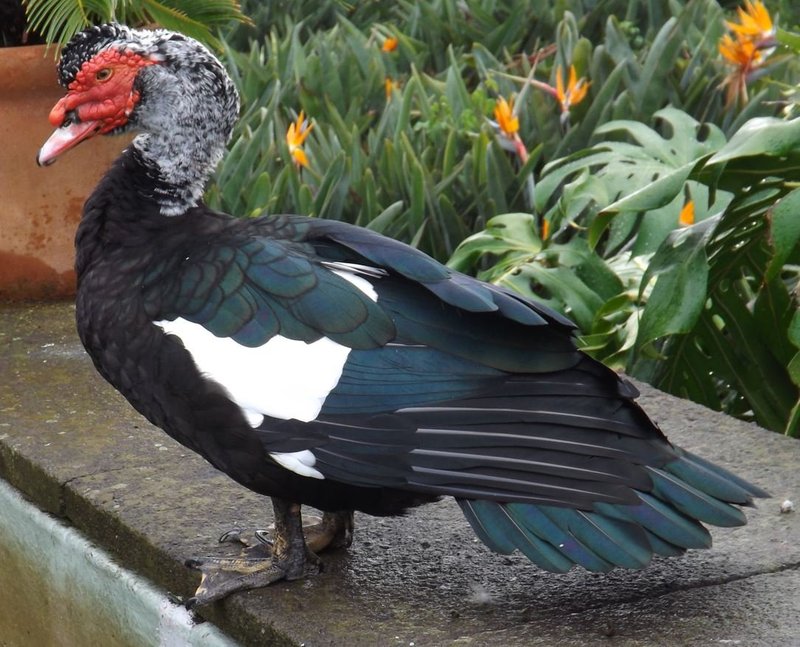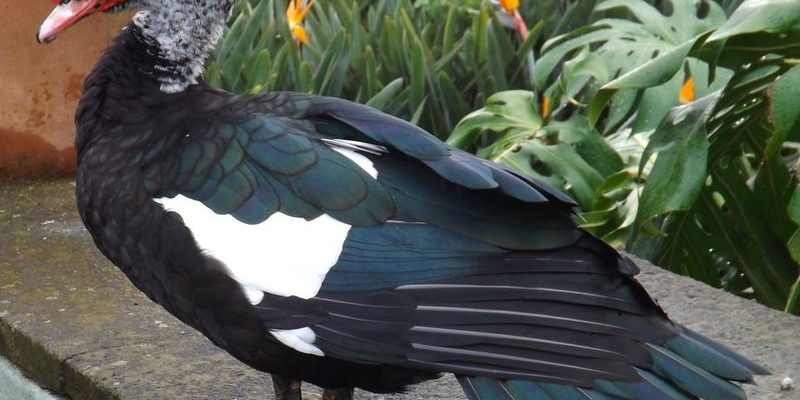
So, what exactly do these ducks munch on, and how do they find their food? Well, grab a cozy cup of coffee, and let’s dive into the world of Muscovy Duck cuisine and their hunting techniques. You might be surprised at how resourceful they can be!
The Muscovy Duck Diet: What Do They Eat?
Muscovy Ducks are omnivores, which means they enjoy a wide range of foods. Their diet includes everything from plant-based items to insects and small animals. Picture them as nature’s little foodies, always on the lookout for their next tasty morsel. They can eat:
- Plants: These ducks love tender greens. You might find them nibbling on grasses, herbs, and even some aquatic plants.
- Insects: Beetles, grasshoppers, and other bugs are a favorite. It’s like an all-you-can-eat buffet for them!
- Small Fish and Frogs: When the opportunity arises, they won’t hesitate to snag a small fish or even a frog.
- Grains: Muscovy Ducks also enjoy grains, making them suitable for domesticated settings where they might have access to feed.
This varied diet means that Muscovy Ducks can thrive in different environments, whether they’re in the wild or domesticated. They aren’t picky eaters, which helps them adapt to various habitats.
How Muscovy Ducks Hunt And Forage
You might be wondering how these ducks find their food in the first place. Muscovy Ducks are natural foragers, relying on their keen eyesight and inquisitive nature to explore their surroundings. They often use a combination of methods to hunt for food.
First, they can be seen wading in shallow waters, where they sift through mud and floating plants. This is where their webbed feet come in handy. They stir up the water, revealing hidden snacks like insects or small fish. It’s pretty much like a treasure hunt!
In addition to wading, Muscovy Ducks also search for food on land. They scratch at the dirt and leaf litter with their feet, looking for bugs or seeds. This behavior showcases their adaptability, as they can easily switch between foraging in water and on solid ground.
Social Eating: How Group Dynamics Affect Foraging
Muscovy Ducks are often seen foraging in groups, which can change the way they hunt and eat. When they’re together, they can share information about food sources, making their foraging efforts more efficient. It’s almost like a team of food detectives working together!
Group foraging can help them find larger food items too. Imagine a flock spotting a big patch of tasty greens or a hidden pile of grains. They can work together to take advantage of these finds, creating a sense of community while they eat.
However, being in a group also has its challenges. There’s competition for food, and sometimes, you’ll see some ducks being more assertive. The dynamics of group foraging highlight the social nature of these birds, making their mealtime more than just about food—it’s also about social interaction.
The Impact of Seasons on Their Diet
Like many animals, the Muscovy Duck’s diet changes with the seasons. During spring and summer, when plants are abundant and insects are buzzing, they have a feast at their disposal. You’ll find them munching on fresh green shoots and plenty of bugs. It’s a buffet of possibilities!
As autumn rolls around, they might need to adapt their foraging strategies. Many insects become less available, and the lush vegetation starts to dwindle. During this time, Muscovy Ducks may shift their focus to grains and leftover seeds from crops. They become opportunistic eaters, taking advantage of what’s left behind in fields.
In winter, their diet can become more limited, especially in colder climates. They may rely more on their scavenging skills, eating whatever they can find—whether it’s leftover food from humans or stored grains. This adaptability ensures they can survive even in tougher conditions.
Feeding Muscovy Ducks: What You Can Offer
If you’re a lucky duck owner, you might be curious about what to feed your Muscovy Ducks. Honesty, a balanced diet is essential for their health. Here are some things you can consider offering your feathered friends:
- Commercial Duck Feed: This provides balanced nutrition that meets their dietary needs.
- Fresh Vegetables: Offer chopped greens like lettuce, spinach, and kale for variety.
- Grains: Corn and oats are excellent choices to supplement their diet.
- Protein Sources: Mealworms and crickets can be a special treat they’ll love.
Just remember, moderation is key! While it’s tempting to spoil them, overfeeding can lead to health issues. Always ensure they have access to fresh water, as hydration is just as vital for their well-being.
Why It Matters: Understanding Their Eating Habits
Understanding what Muscovy Ducks eat and how they forage provides insight into their behavior and ecology. Their diverse diet allows them to occupy different niches within their habitats, making them important players in their ecosystems.
Moreover, by observing their feeding behaviors, you can learn about the health of the environment they inhabit. Healthy Muscovy Ducks often point to a balanced ecosystem with ample food sources.
For backyard poultry keepers, knowing their eating habits is crucial for keeping them healthy and happy. Proper feeding can lead to better growth, egg production, and overall health.
Muscovy Ducks are much more than just charming birds to watch; they are skilled foragers with a varied diet that reflects their adaptability. From plants to insects, they know how to find food in various environments, and their social dynamics make foraging an engaging activity. Whether they’re sifting through mud or scratching at the ground, these ducks show us the beauty of nature’s resourcefulness.
By understanding what Muscovy Ducks eat and how they hunt, we can appreciate their role in our ecosystems and provide better care for them in our backyards. Remember, whether you’re feeding them or simply observing, these quirky ducks will always have an adventure waiting at mealtime!

